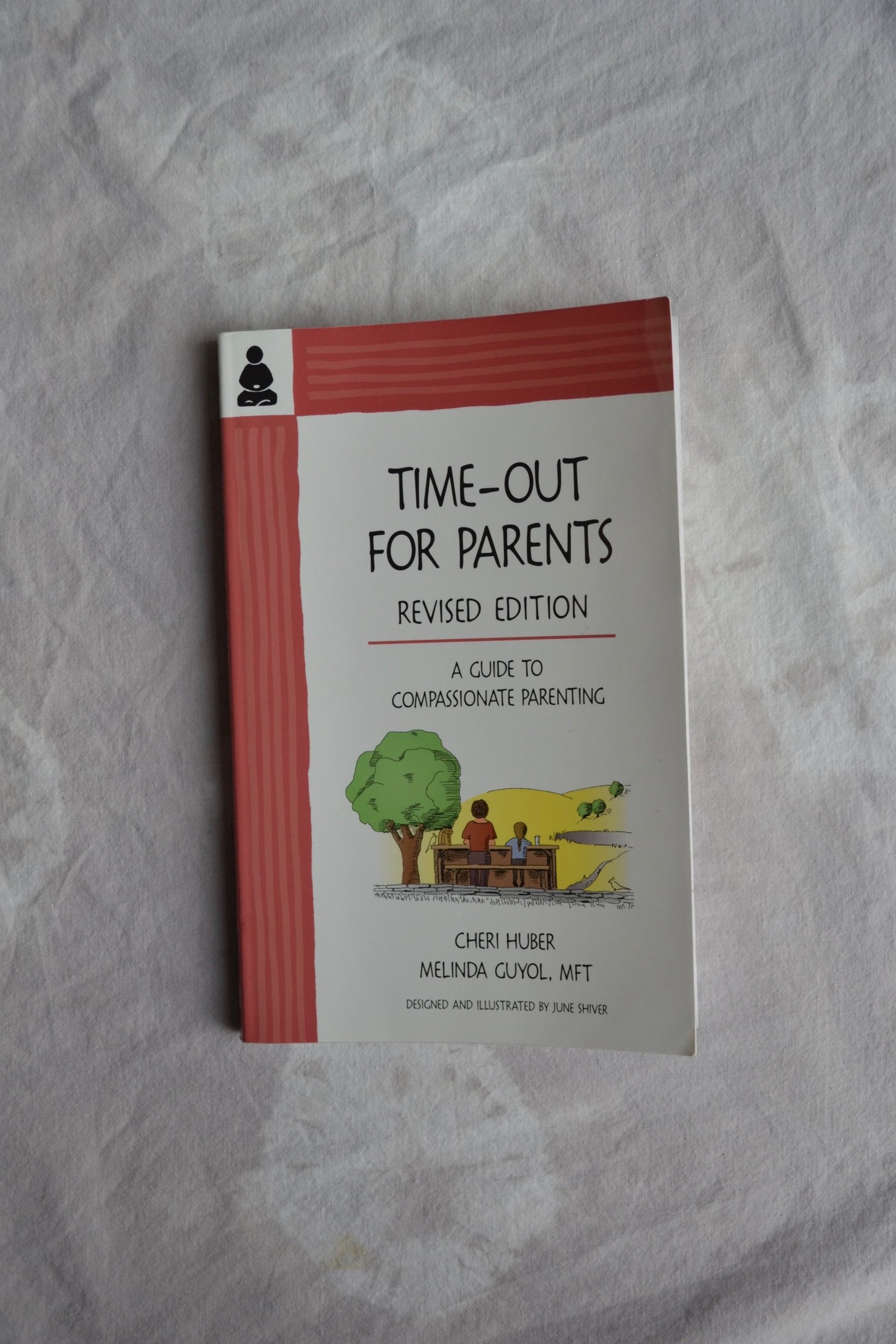I am so grateful that Cheri Huber shares her wisdom with us. She has written two of my top five favorite books that I return to again and again (There is Nothing Wrong With You and Making a Change for Good: A Guide to Compassionate Self-Discipline). She has this miraculous ability to convey complex and truly revolutionary ideas in a way that’s totally accessible (the large [handwritten?] font and illustrations in her books also help keep the text and content from becoming intimidating).
This book, Time-Out for Parents: A Guide to Compassionate Parenting, that she co-authored with Melinda Guyol, MFT, so closely aligns with what I know to be true about caring for children in a way that is attuned, brain-based, compassionate, and intentional. And the more I dig deep into the mechanics of how we care well, I keep coming back to the practice of self-regulation.
Dr. Stuart Shanker explains the value of self-regulation in his book Self-Reg,
“Self-Reg starts with how well we can identify and reduce our own stressors and how well we can stay calm and attentive when we’re interacting with a child… The better you can keep yourself calmly focused and engaged with your child, the more likely he will learn whatever it is that you want him to learn, as well as think through the consequences of his action, deal with his emotions, persevere in a task, and cope with frustration.
This doesn’t require a personality makeover or even willpower on your part. The more you practice regulating yourself to a calm, composed state, the better you’ll feel instantly and the more competent you’ll come to feel as a parent.”
Time-Out for Parents is a quick read and breaks down reparenting (ourselves), self-compassion, acceptance, the process for pausing and attuning to our own needs, and awareness of the stories we tell ourselves. She encourages us to find small, realistic, and manageable ways to take “time-outs” for ourselves (see p. 92 for “How to Take a Mini-Vacation Any Time You Want One”).
“The reason for the difference between what we want for our children and how they actually develop is that they learn more from what we DO and how we ARE than from what we SAY. They learn from what we model and we model what we learned as children.”
I love how the book largely focuses on practicing self-regulation as parents/carers with a wee bit of co-regulation added at the end (because adult self-regulation forms the foundation of a well-regulated relationship system, as you can see in the wonderful infographic below).
Stages of Regulatory Support for Families. Shared with permission from psychotherapist Sheena Hill.
“Once you have found ways to be with your feelings in an accepting way, and once you have found ways of truly being with your child, the next step is learning how to be with your child’s feelings. ”
Because, really, if we can’t effectively and consistently regulate ourselves (as adults with fully developed prefrontal cortices) then how on earth can we expect children to do it?
Book available at Powell’s and Keep it Simple
Self-Reg: How to Help Your Child (and You) Break the Stress Cycle and Successfully Engage with Life by Dr. Stuart Shanker, with Teresa Barker


